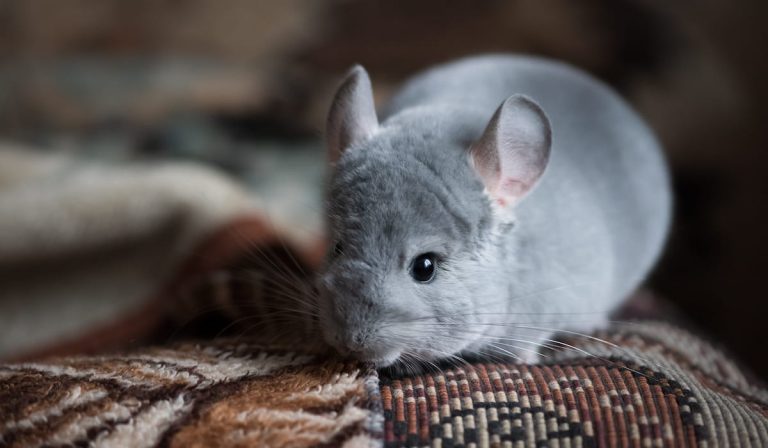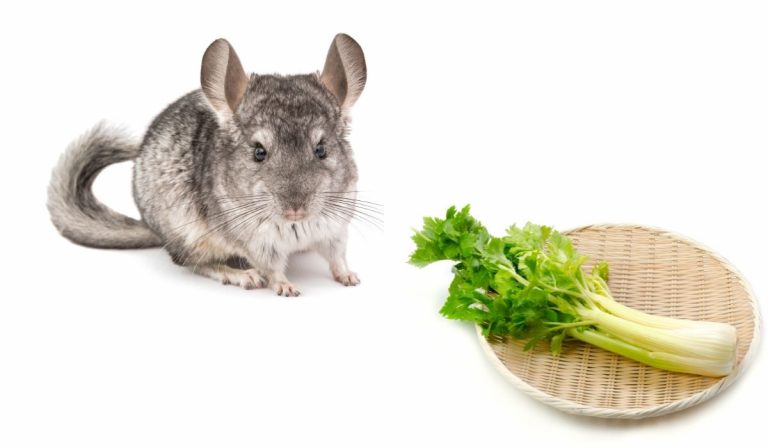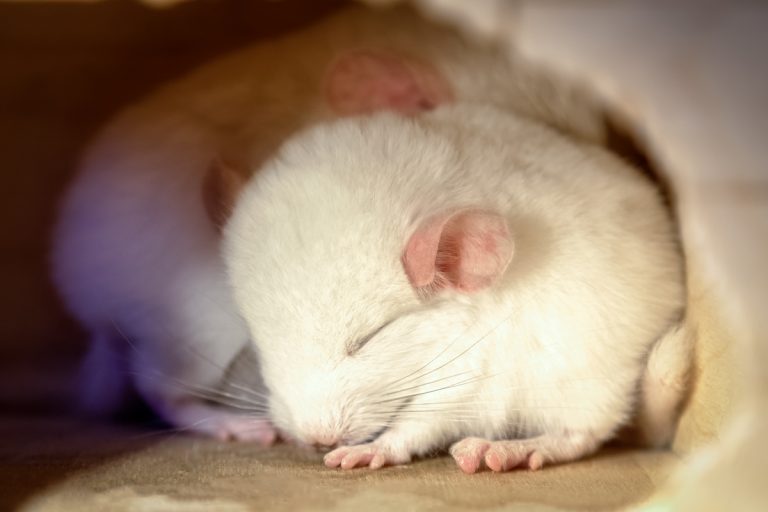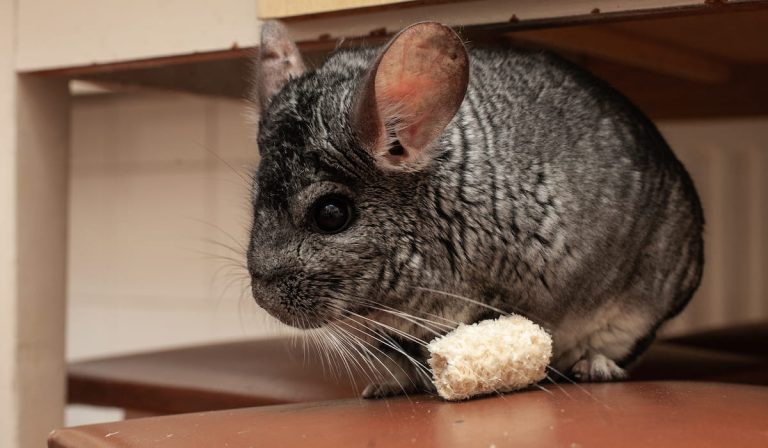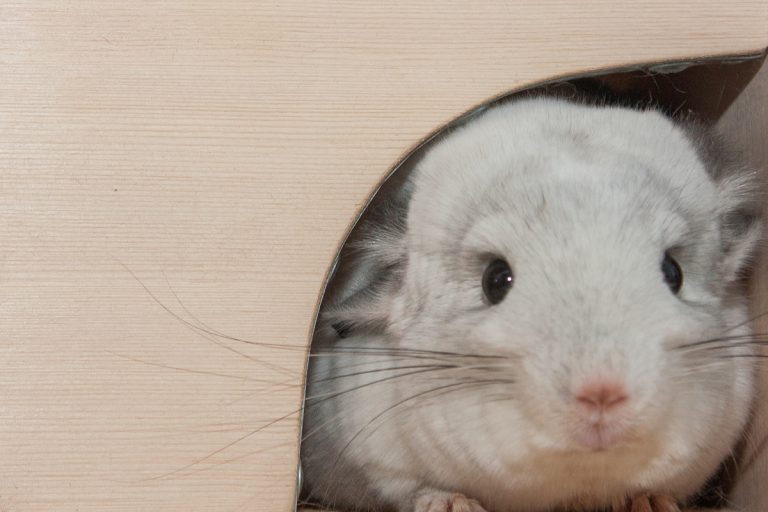Can Chinchillas Get Wet?
Chinchillas are adorable little creatures known for their impossibly soft coat of fur. They vary in color, with some being lighter than others. Owners, understandably, become concerned over whether their coat gets a bit dirty and start to wonder whether they should give their pet chinchilla a bath.
Chinchillas should not get wet. They should avoid getting wet in a traditional bath like the one you would give a dog. Instead, owners will need to buy special chinchilla sand or dust that they use to spray and scrape off any dirt and grime.
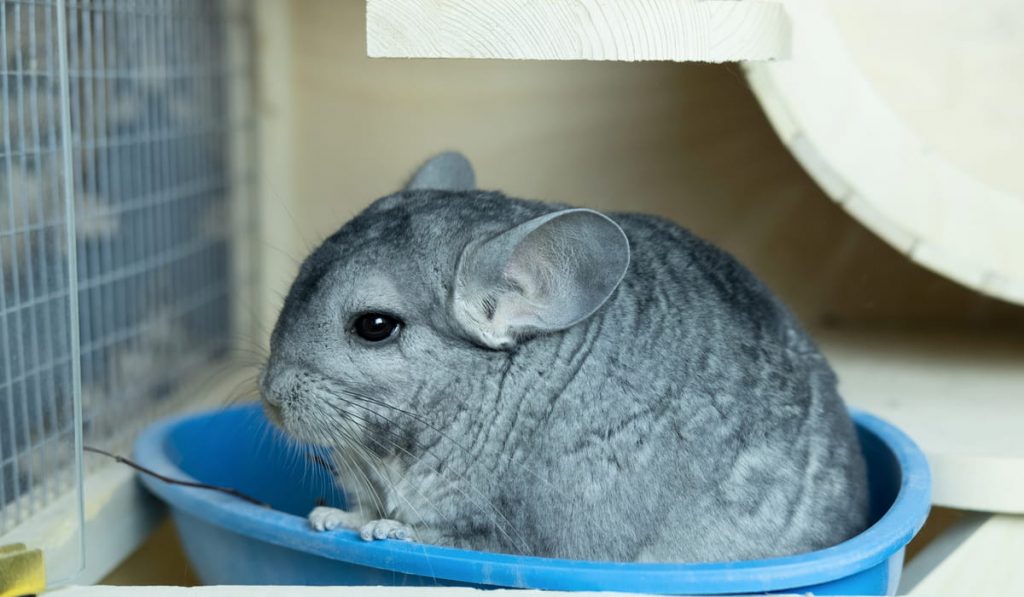
A clean chinchilla is a happy chinchilla, to be sure. Just don’t use water to clean them or else you could be dealing with a sick chinchilla.
These animals like to stay dry, and you should watch them carefully to make sure nothing goes wrong in their cage with their water bottle so they don’t get wet.
Why Chinchillas Need to Stay Dry
Chinchillas don’t get wet. Even in the wild, they go to great lengths to stay dry and keep out of bodies of water. If a chinchilla gets wet, it’s rather easy for them to experience fungal infections or get sick.
In serious situations, or left untreated, a wet chinchilla can become so sick it will kill them.
You don’t need to worry about keeping your chinchilla dry for the most part. They’ll stay away from any pooling or spilled water inside of their enclosures. If, for example, their water feeder malfunctions and spills, they’ll do all they can to avoid the water and stay dry.
The reason they don’t want to get wet is that their coat makes it extremely hard to get the water out. It will retain water and stay damp for hours, making it even more likely to make them sick.
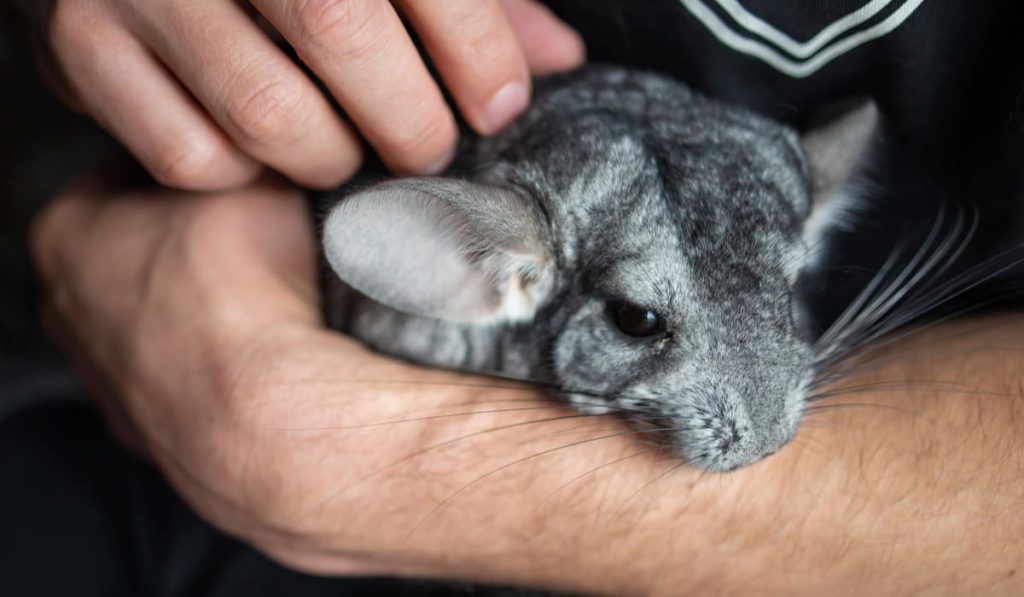
Watching for Signs of Wetness
Ok, so you know that you shouldn’t wash your chinchilla in the sink or anything like that, but owners also need to know that spilled water and excessive sweating needs close monitoring.
If they knock into their water and get some in their fur, they could be wet for a long time. If it gets cold in their cage or enclosure, it can make them sick.
Conversely, if things are too hot, chinchillas can heat up and sweat. If they sweat too much, their fur can get wet and be a problem as well.
You should keep an eye on your chinchilla, and if you see any matted or wet fur, do what you can to dry them off as quickly as possible.
Dust Bathhouses Are the Best Bathing Options for Chinchillas
Now that you know you shouldn’t get your chinchilla wet, how do you go about keeping them clean?
When you first bring your chinchilla home, you’ll be amazed at how clean they look and how soft their fur is.
However, after some time, they’ll start to get a bit dirty from walking around and living just like any animal or human would. So, how do you get a chinchilla clean without using water?
Pet stores will sell special dust or sand that chinchillas, hamsters, and other similar small animals use to stay clean.
You can buy the sand as well as a small enclosure called a dust (or sand) bathhouse.
Put some of the dust in the bathhouse and your chinchilla will know what to do. You’ll see them from time to time going in there and tossing sand on parts of their body and using the dust to groom themselves. That’s how they stay clean.
The dust also does a terrific job of absorbing oils and odors from your chinchilla’s fur coat.
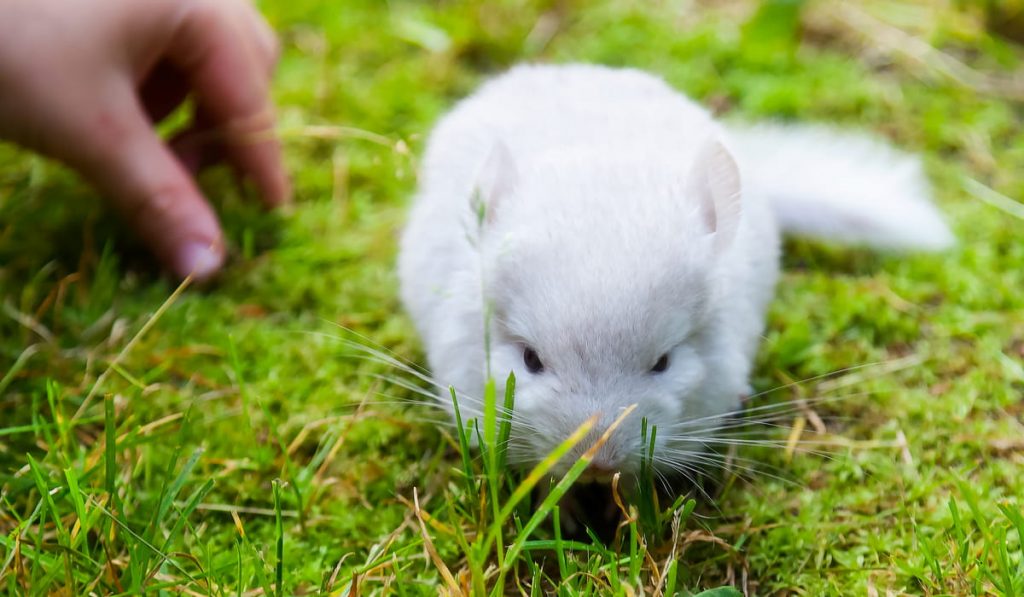
What You Should Do If Your Chinchilla Gets Wet
A bit of water won’t be fatal. The problems really happen when chinchillas get wet and stay wet for too long. It’s not like they can communicate that to you, which is why checking in on them regularly is so important.
If you notice that they are wet, here’s what you can do:
- Separate them from the water source – If the chinchilla is in an enclosure with spilled water, take them out while you clean things up. They could panic when you try to mess around with their home and accidentally run in the water and get even wetter. Place them somewhere safe so you can clean up worry-free.
- Wrap them in a towel – Remember, your chinchilla will probably be feeling cold if they’ve been wet for a while, so you need something that will dry them off and keep them warm at the same time. Wrap them in a towel to soak up excess water.
- Use a blow dryer on the lowest setting – We’ve already mentioned that chinchilla fur will retain water very well, so you may not be able to get everything dry with just a towel. If you’re having trouble getting all of the water out, grab your blow dryer and put it on the lowest setting.
Blow the warm air at the chinchilla from a far enough distance so it doesn’t become too warm. Take breaks and keep at it until you’re confident things are dry.

Check Your Water Bottle
Even owners who know that chinchillas should stay dry run into problems. Most of the time, it’s because their water feeder breaks or comes loose and spills on the chinchilla or around places where they need to walk.
Cleaning your chinchilla’s pen and inspecting the water bottle frequently is the best way to avoid this from happening.
With a clean cage, your chinchilla will be happy and healthy, and you will have peace of mind knowing there is a low risk of any spillage.
Conclusion
Owning one of these amazing animals is a lot of fun, and, when done right, will give you years of bonding with your chinchilla.
Keep them dry and react quickly if they get wet and you should be OK.


